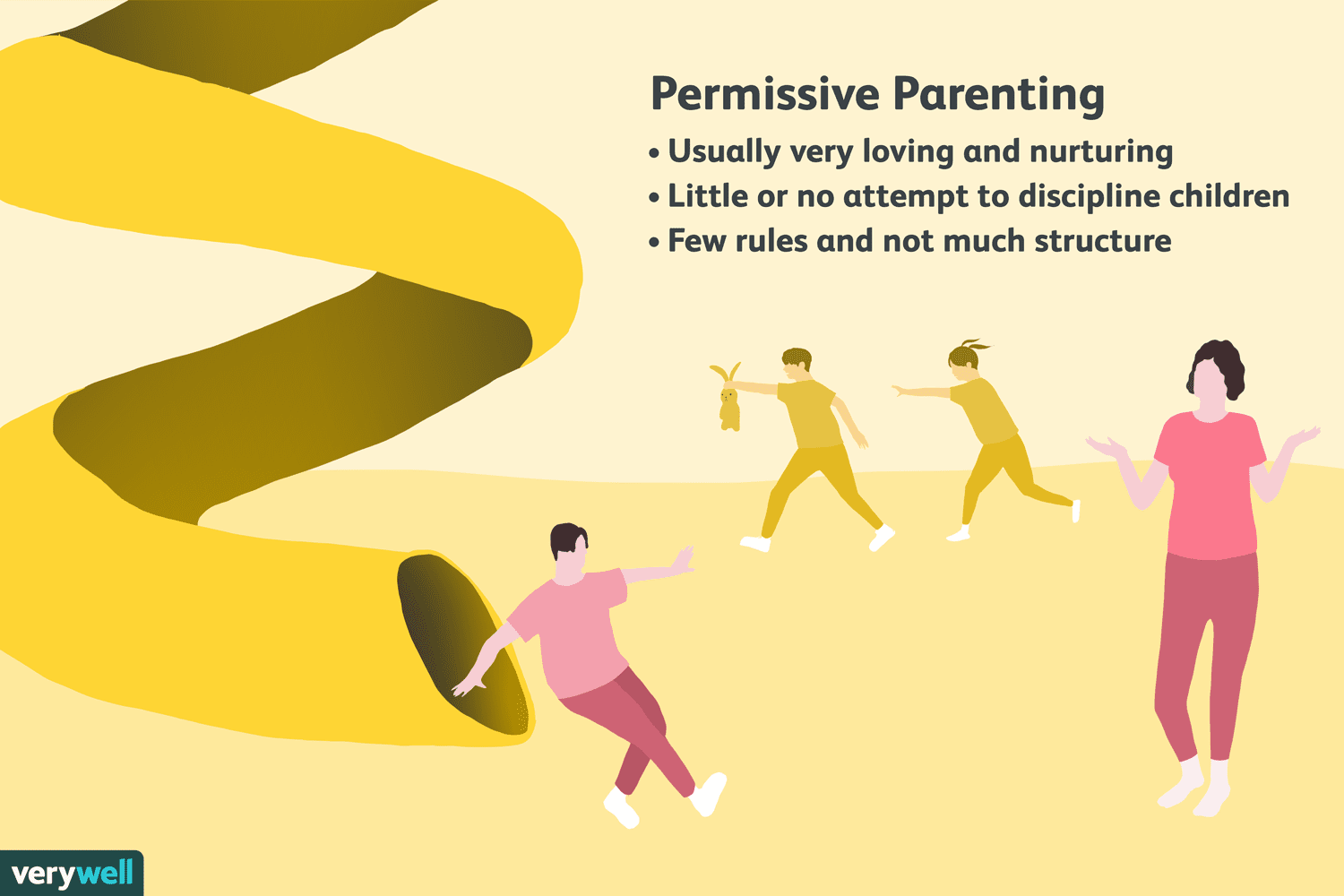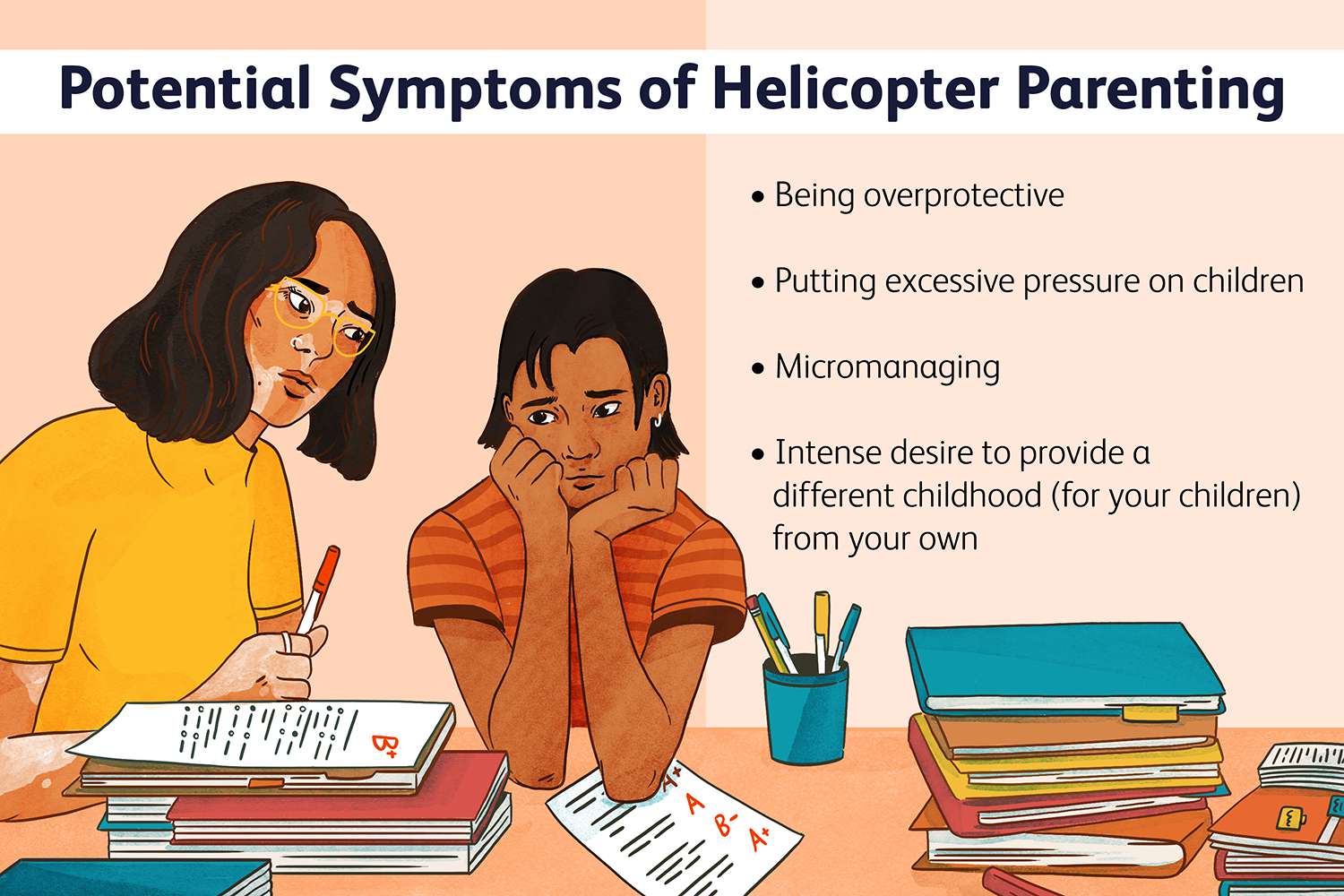Raising children is one of life’s most rewarding experiences, but it can also be one of the most challenging. Every parent has their own unique parenting style, and understanding the differences between each type can help parents ensure their children are receiving the best possible care. In this article, we’ll explore the most common parenting styles and their effect on children. We’ll discuss how different styles can be beneficial in different scenarios, and how to find the best approach for your family. Get ready to learn about the most common parenting styles and how they can shape your child’s future!
Authoritarian Parenting: This parenting style is characterized by strict rules, expectations, and discipline

Authoritarian parenting is a parenting style characterized by strict rules, expectations, and discipline. This style of parenting is known to be highly unresponsive to children’s needs and emotions, and often relies on punishment to shape behavior. Although the child may be obedient and respectful, this parenting style can have a long-term negative effect on the child’s development. Studies have shown that children raised with an authoritarian parenting style are more likely to have issues with mental health and self-esteem, as well as difficulty forming relationships. Additionally, these children are more likely to struggle with problem-solving and critical thinking skills. In extreme cases, children who experience authoritarian parenting may develop behavioral issues and display signs of aggression. In order to ensure children get the most out of their upbringing, it’s important for parents to focus on building an atmosphere of trust and understanding, rather than relying on punishment and discipline.
Children of authoritarian parents are often obedient, but may be less likely to think for themselves and lack creativity.

Authoritarian parenting is a parenting style that involves high levels of control and strict rules. Parents who use this style of parenting often have high expectations of their children and are very demanding. Children of authoritarian parents are typically obedient, but may lack creativity and self-initiative. This is due to the lack of freedom to explore and express their own thoughts and feelings. This can lead to children being less independent and relying heavily on parental guidance. Additionally, children of authoritarian parents may be more likely to develop anxiety and low self-esteem due to feeling like they are unable to meet their parents’ expectations. It is important for parents to provide structure and guidance, but also to allow their children the opportunity to engage in creative activities and express their own thoughts and feelings. Encouraging open dialogue between parents and children can help foster creativity, critical thinking, and self-confidence.
Permissive Parenting: This parenting style is characterized by a lack of rules and expectations, and instead focuses on building a close relationship with the child through positive reinforcement

Permissive parenting is a style of parenting that focuses on building a close relationship with the child through positive reinforcement. This parenting style is characterized by a lack of rules and expectations, which can lead to confusion for the child about what is and isn’t acceptable behavior. It’s important to note that permissive parenting still sets limits and boundaries, but they are often more lenient than with other parenting styles. The downside of permissive parenting is that it can create a sense of entitlement in children, as they often don’t learn the value of hard work or the consequences of their actions. Additionally, permissive parenting can lead to a lack of discipline and cause issues with children’s behavior when interacting with other adults. It’s important for parents to find a balance between providing structure while still allowing children to explore and learn in a safe, encouraging environment.
Children of permissive parents may be more independent and self-sufficient, but may lack self-discipline and struggle with authority figures.

Permissive parenting is often a misunderstood parenting style, as it can often lead to children who are more independent and self-sufficient. However, it’s important to note that while children of permissive parents may be more independent, they may also lack self-discipline and struggle with authority figures. Permissive parenting is often characterized by low levels of parental control and communication. Parents who practice permissive parenting tend to avoid conflict and may not be as consistent with enforcing rules and setting boundaries. As a result, children of permissive parents may not understand the concept of consequences for their actions and may have difficulty making decisions and controlling their own behavior. Ultimately, parents who practice permissive parenting should be aware of the potential implications it may have on their children and should strive to be more consistent in setting boundaries and enforcing consequences when necessary.
Uninvolved Parenting: This parenting style is characterized by a lack of engagement and communication with the child

Uninvolved parenting is a style of parenting characterized by a lack of engagement with the child. Uninvolved parents tend to be distant from their children, provide little guidance or support, and are often unresponsive to the child’s needs. This type of parenting can have a negative effect on children, as it often results in feelings of low self-esteem, insecurity, and a lack of trust in adults. Furthermore, children of uninvolved parents may experience difficulty forming relationships and may struggle to cope with stress. It is important for parents to strive for a balance of involvement and nurturing, in order to create a safe and secure environment for their child. With the right support and guidance, children of uninvolved parents can learn to develop healthy relationships and succeed in life.
Children of uninvolved parents may lack self-confidence and struggle with forming relationships.

Children of uninvolved parents may lack self-confidence and struggle with forming relationships. When parents are uninvolved in their child’s life, the child may struggle to trust their own decisions and struggle to develop a healthy sense of self-esteem. They may also find it difficult to build relationships with peers or authority figures, as they may feel unsupported and lack the skills to form strong bonds. Uninvolved parents may be unaware of the impact their lack of involvement is having on their child, and the resulting effects can be lifelong. Parents can help their children to build self-confidence and form relationships by taking an active role in their lives. This can include having regular conversations, offering guidance, and setting clear boundaries and expectations. Involvement in their child’s activities, school, and extracurricular pursuits can also help to build a strong connection and support their child’s development.
Authoritative Parenting: This parenting style is characterized by clear and consistent rules that are enforced with warmth and understanding

Authoritative parenting is a style of parenting that emphasizes both the warmth and understanding of a parent as well as the enforcement of rules. This parenting style is based on mutual respect between parent and child, and encourages open communication between them. This parenting style is most effective when the parent communicates clear and consistent expectations for their children, and enforces those expectations with understanding and empathy. This style of parenting encourages children to be independent and responsible for their own behavior and decisions. Studies have shown that authoritative parenting leads to children who are more confident, self-reliant, and successful in life. This style of parenting has been shown to produce children who are better able to cope with stress and more likely to achieve their goals.
Children of authoritative parents often have better social skills, are more independent, and have better self-esteem.

Authoritative parenting is a style of parenting that is focused on providing structure and boundaries while also providing warmth and support. Children of authoritative parents are often seen to have better social skills, greater independence, and higher self-esteem than those raised with other parenting styles. Studies have found that children of authoritative parents are better able to regulate their emotions, are less likely to become involved in risky behavior, and are more likely to become self-confident and successful adults. This is likely due to the fact that these parents are able to provide structure while also giving their children the freedom to explore and feel connected to them. They also provide feedback and support when necessary, helping their children develop a sense of security and confidence. Authoritative parents are also more likely to encourage their children to think for themselves and make their own decisions. This helps children develop their own sense of self-worth, as well as the ability to make responsible choices. By providing a supportive and trusting environment, these parents help their children to become more independent and confident. In short, children of authoritative parents can benefit from having better social skills, greater independence, and higher self-esteem than their peers. These parents are able to provide the structure and support necessary to ensure
Helicopter Parenting: This parenting style is characterized by hovering over the child’s activities and making most of their decisions for them

Helicopter parenting is a parenting style that is characterized by being heavily involved in their children’s lives. This can mean being overly involved in their children’s education, social life, and even their career. Parents who are helicopter parents tend to make most of their children’s decisions for them and will often go to great lengths to make sure their child is successful. This parenting style can have both positive and negative effects on children. On the one hand, the child may have more guidance and direction, which can lead to increased academic success and better self-esteem. On the other hand, if the child is not given the chance to make their own decisions, they can become overly dependent on their parents and struggle to make independent decisions later in life. Additionally, they may feel a lack of autonomy and resent their parents for being too controlling. It’s important for parents to strike a balance when it comes to helicopter parenting so that their children can benefit from their guidance but still have the room to make their own decisions.
Children of helicopter parents may be more dependent and struggle with problem-solving and decision making.

Helicopter parenting is a parenting style where parents are constantly hovering over their children, often to the point of being overly involved in their children’s lives. While it’s natural for parents to worry about their children and want to make sure they are safe, helicopter parenting can often be too controlling. Children of helicopter parents may become overly dependent on their parents, as they never had to learn how to make decisions for themselves. This can lead to them struggling with problem-solving and decision making when they reach adulthood. Additionally, helicopter parenting can lead to children having low self-esteem, as they never had to learn how to do things on their own. This can make it difficult for them to set and accomplish goals, or even to make their own decisions. It’s important for parents to strike a balance between providing guidance and allowing their children to make their own mistakes, as this will help them become independent and confident in their abilities.




